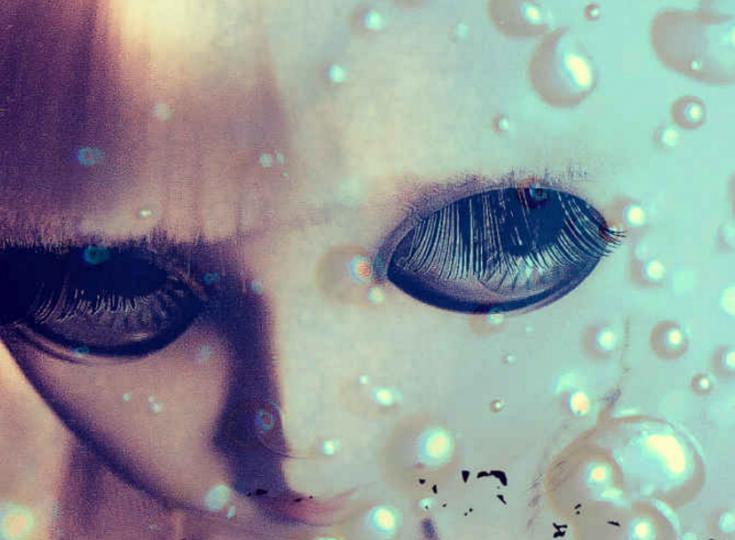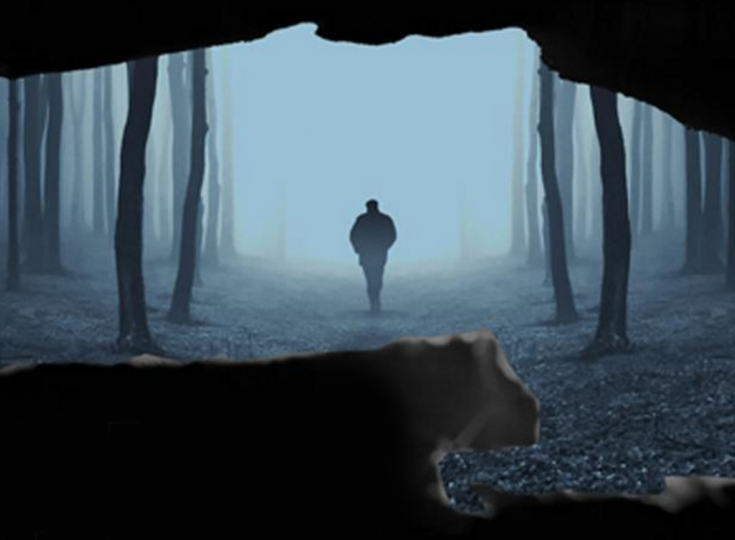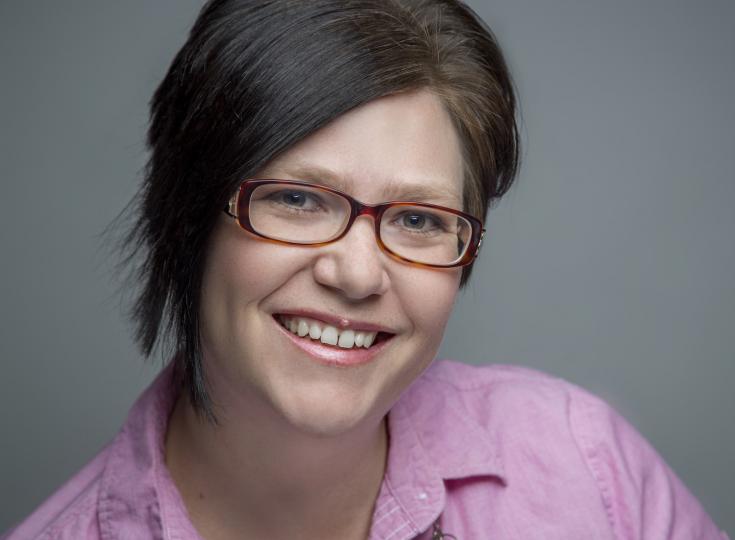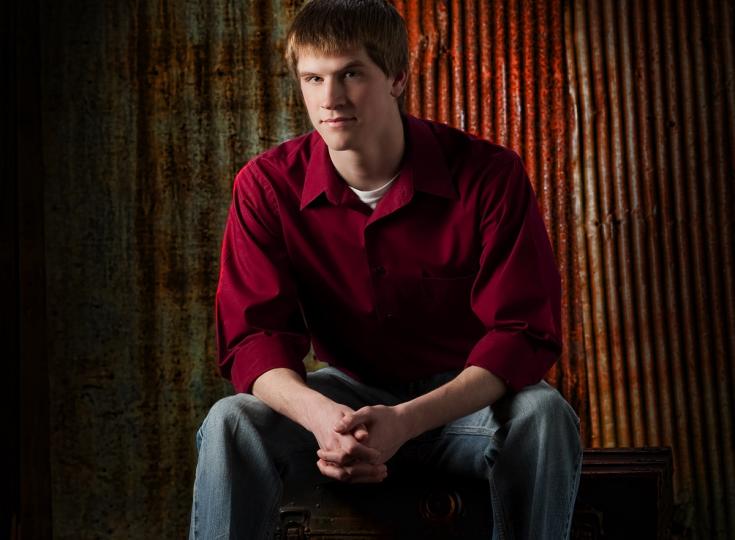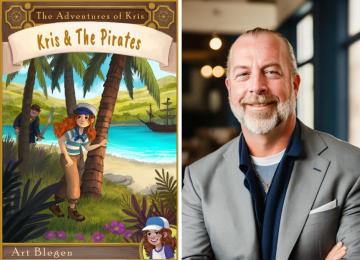E.S. Matthew - A Rip-Roaring Fantasy Adventure
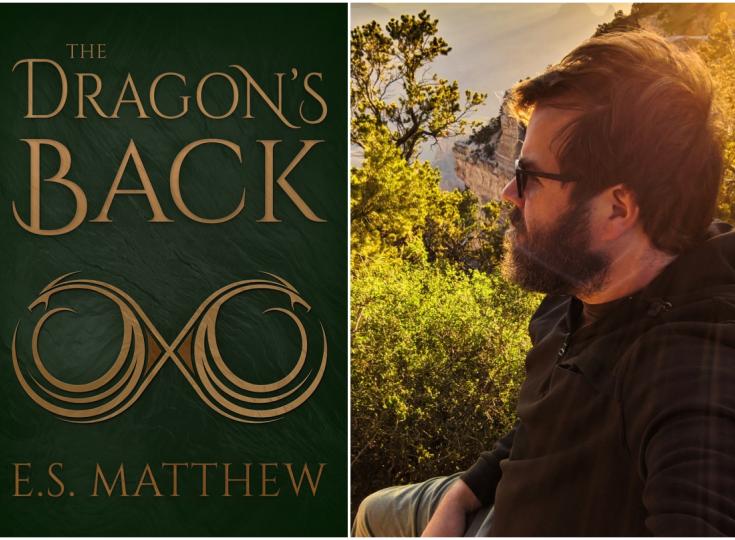
Inspired by his years teaching high school literature, E.S. Matthew writes retro-fantasy to rehabilitate the classic genre for modern young readers and contemporary adults. The stories he loved as a kid about fantasy worlds, awe-inspiring landscapes, foundling destinies, magical creatures, unlikely companions, and heroic journeys are ones he still enjoys sharing with his own children and students. His love for this genre, and the exuberant imaginations that fuel it, are matched only by his passion for this generation of readers to find themselves within it. He was lucky to see himself in fantasy literature as a child, and he wants nothing less for his readers, his children, and his students. But he also wants something for grown-up readers, like himself. He wants to re-capture some of the hope that fantasy once inspired in him. For adult readers in our modern, angry world, he seeks to offer such hope through refreshed landscapes—where nostalgia and progress can coexist, where our shared fright, tears, gasps, and joy can thrive. When he’s not teaching or writing, he cooks elaborate meals inspired by his favorite movies and books and accompanies his daughter on guitar for improvised Broadway numbers. As our Author of the Day, he tells us all about his book, The Dragon's Back.
Please give us a short introduction to what The Dragon's Back is about.
The Dragon’s Back is a YA fantasy adventure, the first book in a planned trilogy called The War of Hope and Doom. The story centers around Cali, a renegade bounty hunter and mage, who’s been left a powerful artifact, the Axis, by her father that can save the world from the evil that reigns by awakening a dragon. Dragons once ruled the land, but have been dormant for many years, and few even know that an Axis survives. But Cali carries her own scars—the death of her parents, the Mage Purge, a deep betrayal by her twin brother, and more—and would rather continue to do what she must simply to survive. But when the call of her father’s last words becomes too much, she finds the Axis and begins her journey.
In the classic fantasy tradition, she’s joined on her quest by a band of misfits, both human and fae. The stakes of the story are high. If Cali and her band of companions fail, nothing will be able to stop the evil Queen Morflava from taking over the continent and spreading her brand of hate and division to everyone in the land. The fae will be persecuted out of existence, and the Reshki order, fantatical mage-monks who form an alliance with Cali, will fall. The worst of humanity will be left to prey on the weak, oppress those who are different or powerless, and exploit the land and the people to gain as much power as possible.
What inspired you to write this story? Was there anything that made you want to tackle this?
As a high school teacher for over fifteen years, I consider teaching my calling, but I was strangely inspired to write something that responds to my working with teenagers today. There’s a growing tension for young people to mature in a polarized world, and I wanted to show that and provide some guidance for them through a different avenue than just preaching at them. I think the fantasy genre became the natural opening for the story because it provides so much opportunity for an approachable allegorical overlay. Of course, teaching Beowulf for the last fifteen years also might have had something to do with it!
Why retro-fantasy? What drew you to the genre?
I’m drawn to the idea of a retro-fantasy because I want to improve a classic genre so it can still serve as an imaginative space for modern young readers to understand themselves and their experiences. I wanted to see if I could build a world relevant to the genre and the kinds of kids I teach at the same time.
I mean, the stories I loved as a kid about fantasy worlds, awe-inspiring landscapes, foundling destinies, magical creatures, unlikely companions, and heroic journeys are ones I still immensely enjoy sharing with my children and students. But I also know that these stories are often built on wrong-headed, outdated perspectives on so many important things.
I was lucky to see myself in fantasy literature as a child, and I want nothing less for my readers, my children, and my students. I think seeing yourself in the stories you read and watch is so important to developing a sense of self—we all want to be the hero, not the damsel in distress or the sidekick.
But I also wanted to create something for grown-up readers like myself. I wanted to re-capture some of the hope that fantasy once inspired in me. For adult readers in our modern, angry world, I want to offer such hope through refreshed landscapes—where nostalgia and progress can coexist, where our shared fright, tears, gasps, and joy can thrive, and where the hero can come from an unexpected place or look like anyone.
Besides writing, what other secret skills do you have?
I don’t know about secret skills, but in my free time, I enjoy cooking. Mott’s attention to detail in food preparation, and the many meals that are described in the book, probably give some of that away. I find cooking a practical creative endeavor. I like to, for example, create themed menus for movie marathons or special seasons of television shows I love, like making a savory pie based on the different houses in Game of Thrones to accompany the final episodes or making lots of British food (full English breakfast, shepherd’s pie, pasties, etc.) to accompany a recent Harry Potter movie marathon with my kids.
Tell us more about Cali. What makes her so special?
I hope that one thing that makes her special is that she’s a female hero who is very, very legitimately strong. I wanted her physical, emotional, and almost spiritual nature to be filled with grit and courage. I mean, that’s what all heroes are anyway, right? I wanted her to be a real depiction of that. She has gifts and powers and abilities and the like, but I like heroes who have internal struggles about the confidence and faith in those things about themselves. So she is all those things, but that doesn’t mean she’s not afraid or filled with doubt. Really courageous young people persevere despite the fear, and that’s inspiring, I think, to everyone.
Which of your characters was the most challenging to create?
The dragon itself was probably the most difficult. I couldn’t recall too many other stories I’d read where the dragon isn’t serving as an all-powerful deus ex machina or a medieval type of monster where they have intelligence and power but primarily present the hero with riddles or games. I wanted to have a dragon that can be all those things, but I also was fascinated by what a character with such awesome power would think of itself and others. So that was difficult, but enjoyable, to discover.
Do you have a set of rules for your world? Is there a process you go through that helps define these?
I try to remain consistent once something is set down. Really, I try a lot of things on. I think having too many rules early on would be limiting for me and for the reader. But once something works I find it a good writing challenge to adhere to it, not allowing myself to just adapt it for the circumstances to make things easier for me. An example would be the Reshki’s rules, especially Flosson’s eating when in the helmet. This presents a challenge to me as a writer that I enjoy, finding ways for the reader to never forget that that is a key part of his physicality but also always bringing it up in a way that seems new or presents a new perspective on it. If there is a rule then, I guess my rule is to be conservative with making them at the outset and then rigorous and creative with enforcing them throughout.
Readers say your story had them hooked from start to finish. How did you pull this off?
The prologue was actually a chapter I wrote after I’d fully drafted the first third of the book. And that was not true of the rest of the book. The rest was pretty much composed straight on through. But about a third of the way through, when the company of heroes are finally unified and have developed their community together, I realized I needed a scene that really allowed Cali to be a solitary hero. I didn’t want her to be seen as a powerful heroine only in the company of friends, as much as I like all of them together. So I just started to write a kind of “one-off” scene of her being a bounty hunter. It was kind of a prequel or origin story, so to speak. And so I was even more liberal with the action and the comedy. I think that’s part of it, personally. I mean, I enjoy re-reading that chapter myself and smile at my own jokes in it.
Have you always wanted to be a writer?
No, not really. I was the kind of young adult who didn’t know what he was supposed to do because I felt most things were beyond my reach. I wound up becoming a teacher, though, and really finding myself and my “calling” there. And then working with young folks, I realized that I had had a pretty sad point of view as a teen myself. In other words, I realized I wouldn’t want my students to think of their own ambitions are beyond their reach. Writing The Dragon’s Back allowed me to explore some of that thinking in the characters as a way to write for current young people and kind of back to my own younger self, I suppose. But it also kind of proved to myself that I could do it—I could write a wholly original story in a wholly original, though recognizable, fantasy world.
This is your debut novel. What has the experience been like so far?
Writing it was fun honestly. I like creating things. But I am also a pretty reserved person, even somewhat private about a lot of things. I was the kind of kid who was often described as “shy.” But once I plucked up the courage to share it, and it's been this way with other things I have created, I always realize how rewarding it is to take that risk. I am glad there are people reading it and I am glad people are also enjoying it. But honestly, even doing things like this interview makes me pretty anxious. So it’s been good for me—rewarding and challenging, which is what all the most meaningful things in life are anyway.
Why did you title this "The Dragon's Back"?
The title was difficult to come up with until about two-thirds of the way through the second draft of the novel. I needed a pretty ominous, old, and yet also straightforward name for an ancient fortress, and the “Dragon’s Back” just sounded right. I think I was unconsciously trying to think of something as short and simple and yet also intensely doom-filled as Tolkein’s “Helm’s Deep.” Once I had the name, though, the description wrote itself. The fact that the name provided also a pun on the novel’s quest of waking a dragon…well, it just seemed too coincidental to pass up. I was anxious at first because I worried it sounded too “unserious” or something. Though to be completely honest, I also kind of liked the over-the-top, serial-styled title (maybe because of my childhood nostalgia for The Empire Strikes Back). But I liked it even more when it was also echoing an important location from the plot.
Do you have any interesting writing habits? What is an average writing day like for you?
I don’t know that I have any interesting writing habits, but since I’m a teacher, I do my writing in the summer. The Dragon’s Back was written almost entirely in one summer break, and then I revised and edited it during breaks from school throughout the year. As a high school teacher, I’ve also trained myself over years of writing essay feedback to write really quickly and write really naturally. I don’t stress or re-write much anymore. So during those summer days, I was committed to writing full drafts of at least three chapters a day. This was also practical. I wanted to get a full draft done in ten days because, while I am off in the summer as a teacher, I am still on duty as a dad. I have two smallish kids at home, and they were occupied with camps for those days. In other words, it was kind of all or nothing then!
What are you working on right now?
I’m currently working on the second book in the series—The Tower Falls. It picks up where The Dragon’s Back leaves off and opens with a focus on Flosson’s own quest of discovery, but the heroes will be brought back together eventually. The circumstances of how they do, I think, will be surprising. I’m really excited to explore more of the world and hope to have a productive creative writing summer as I had last year.
Where can our readers discover more of your work or interact with you?
This is my first novel, but I’m excited to try to write more. And I’m very active on Twitter in the writing community. I’d love for readers to reach out there if they want to discuss the book. I’m also on Facebook and Instagram of course. And they can subscribe to my newsletter at my website esmatthew.com.
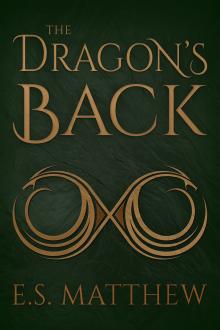
In a world where magic is outlawed and division and hate plague the land, a renegade mage can no longer ignore the call of her father’s dying words to reclaim an ancient artifact capable of reawakening dragons and challenging Queen Morflava’s reign of terror. Fans of The Wheel of Time, The Stormlight Archives, and Lord of the Rings will love this sweeping new epic fantasy adventure.
